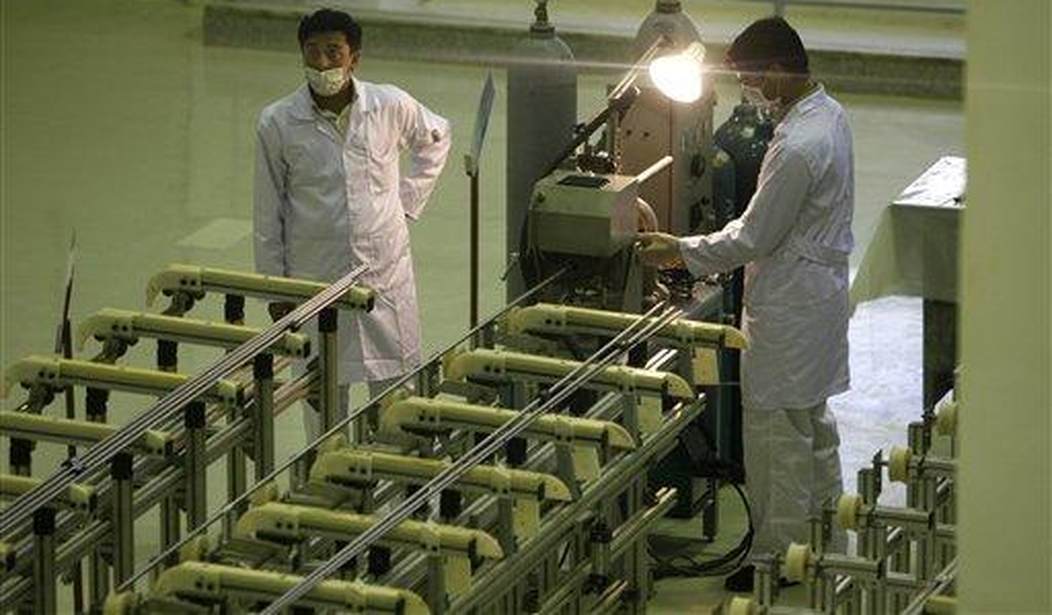Someone should ask Joe Biden how those talks for the U.S. to reenter the Iran nuclear agreement are going. He might want to check what’s happening in Iran.
Last week, Iranian President Hassan Rouhani struck an optimistic note in speaking about the nuclear talks in Vienna between Iran and 6 other big nations that look to bring the U.S. and Iran back into accord with the agreement signed in 2015.
But on Saturday, the speaker of the Iranian parliament, Mohammad Bagher Qalibaf, said that Iran would no longer allow access to images from cameras trained on Iranian nuclear sites 24 hours a day. That means that one of the primary safeguards to prevent Iran from carrying on illegal research and development of nuclear weapons is lost to the UN inspectors.
“Regarding this, and based on the expiration of the three-month deadline, definitely the International Atomic Energy Agency will not have the right to access images from May 22,” Qalibaf said.
The IAEA said earlier that they were negotiating with Iran to extend the deadline to continue to give them access to the images. But Iran has now ended those negotiations.
Under what is called an “Additional Protocol” with Iran, the IAEA “collects and analyzes hundreds of thousands of images captured daily by its sophisticated surveillance cameras,” the agency said in 2017. The agency also said then that it had placed “2,000 tamper-proof seals on nuclear material and equipment.”
Iran’s hard-line parliament in December approved a bill that would suspend part of U.N. inspections of its nuclear facilities if European signatories did not provide relief from oil and banking sanctions by February. The IAEA struck a three-month deal with Iran to have it hold the surveillance images, with Tehran threatening to delete them afterward if no deal had been reached.
The IAEA will brief the media on the situation later on Sunday. They will try to put the best face on this turn of events in order not to derail the Vienna talks. But any way you look at it, this makes any agreement reached in Vienna a sham. With the cameras turned off, Iran would be able to do anything they please at their nuclear sites.
It wasn’t immediately clear if the images from February had been deleted. Before Qalibaf’s remarks, lawmaker Ali Reza Salimi urged an open session of parliament to ensure Iran’s civilian nuclear arm “erased” the images. The Atomic Energy Organization of Iran did not immediately comment on the decision.
“Order the head of the Atomic Energy Organization to avoid delay,” said Salimi, a cleric from Iran’s central city of Delijan. The “recorded images in the cameras should be eliminated.”
It also wasn’t clear what this meant for in-person inspections by the IAEA. There are 18 nuclear facilities and nine other locations in Iran under IAEA safeguards.
IAEA inspectors used the images to help plan their inspections. If they saw anything suspicious going on at a specific site, they could demand access. Now, the inspectors are likely to be given access little better than that given a tourist.
Iran is betting on an American surrender to receive tens of billions in frozen funds, access to the international banking system, and a lifting of sanctions on their oil industry so they can sell openly on the international market.
The U.S. under Biden apparently won’t allow anything to stand in the way of its cave-in to the radical, terrorist-supporting fanatics in Tehran.









Join the conversation as a VIP Member